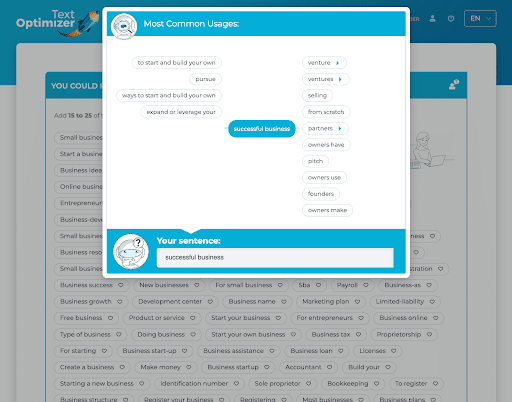Being online makes people impatient. Whether it’s individuals or businesses, everyone wants quick responses and fast results. Their metrics may differ, but the underlying impatience can be observed across the spectrum.
With digital marketing though, you have got to play the long game. There is never a point at which businesses can switch to auto-pilot and cruise along. The audience is constantly (and rapidly) evolving. The platforms that serve them are evolving in response. Businesses, therefore, have no choice but to follow and embrace these changes.
Some are quicker to realize this than others. If you find yourself lagging in this space, or are looking to boost your efforts, here are only three of the many things you can do to enhance your digital marketing performance.
They apply to small businesses as well as solopreneurs. These are not hacks, mind you, but processes that will have to be thoughtfully implemented for best results.
1. Prioritize Value to Users over Product Promotion
As the inventor of a unique idea or an eager marketer of an exciting product, I understand the temptation to gush about your offering at any given opportunity. But as interesting as the product is to you, it will only interest the target audience if you describe how invaluable it can be to them through content that does not feel like marketing. (Tough, I know.)
In short, focus on the needs of the desired customers and find creative ways to convey the features and benefits of your product/service that can make their lives better. Let them warm up. At first, it’s better to show than tell.
The buying will happen when they are piqued by the content (because it is of value and relevance to them). I find business owners get jittery and restless if they feel their content does not dwell on the notable features of their product from the beginning.
Holding back a little might be better; remember, this is digital marketing in an era where the real commodity everyone is fighting for the user’s attention. Unimaginative advertising is the fastest way to lose it. Nurture people’s attention with well-timed and helpful , and let the sales happen organically.
can help you adjust your content strategy to focus on what your target audience needs. It uses semantic research to find related concepts and entities to help you create content that caters to the real need:
Using and to collect feedback from your audience is another great way to create a marketing strategy that prioritizes your customer.
You can only if you make the reader your priority.
2. Amplify Your Social Efforts with Native Content
You may be aware that different social channels attract different users, but are you making use of that information?
Individuals behave one way on Twitter and another way on Snapchat. I can write at length on Facebook because the platform is amenable to that; on Instagram, however, my post is a goner if I write too much and don’t make people stop in their tracks with an artistic image. This basically means that one cannot post the same content everywhere, and yet many businesses are guilty of this.
Go native instead. Even your sponsored advertisements should feel like top-notch content that users have come to expect from the platform(s) of their choice. It should take them a moment to realize what they are seeing on their feed is an ad and not a regular post from the influencers they follow. That’s how well your content should blend in with the ecosystem of the platform.
And yet, don’t forget that your site is still your priority. Social networks come and go but your site is what is constant. Lots of businesses make the same mistakes these days: They prioritize social media over their own websites. Newer businesses even neglect setting up a website.
In the long run, this is a huge mistake. Losing a social media marketing channel or organic rankings is usually a hit to any marketing strategy but it is easy to survive when you can lean on a channel that’s your own.
If you don’t have your own business website yet, make sure to set up one using which is a free brand name generator that also checks social media availability and creates a logo for your business:
Even is better than nothing.
3. Embrace Continuous Learning (This Is a Fast-Moving Space)
As a digital marketer, you need to keep learning just to stay relevant — whether it’s gaining technical expertise, keeping up with Google’s whims, or developing a skill in relation to the core of your business.
From attending seminars and industry conferences to signing up for webinars, there’s a lot your team can do to improve their skills. As a business owner, I exhort you to let them make time for this. Not surprisingly, businesses that are excelling are the ones that display an in-depth understanding of how the digital marketing machinery works.
A strong case can be made for subject specialization, too. Expertise comes at a premium. It’s never too late to go back to school to finish that degree in nutrition or architecture or acquire a new one if you feel it will strengthen your résumé and make your business more credible.
You don’t have to quit anything either; online learning brings a range of courses to you at your convenience, regardless of location. You learn on your time and the business does not suffer. Specializations and certifications can give you a competitive edge.
Field specialization will also impart depth to your content that might otherwise be missing. Too much content on the Internet is derivative, repetitive, and shallow. People steer clear of that and seek out in-depth articles and expert content. The only way to meet those expectations is to either hire someone who is up-to-date in their field or cultivate your own skills. Make an investment in learning an ongoing process.
Adaptation Is The Key to Digital Marketing Success
There’s no set template that ensures digital marketing success. Every business will chart a different path. But being adaptable and open to learning can give you the long-term advantage you seek. What are you doing to improve your digital marketing?
This content was originally published here.




